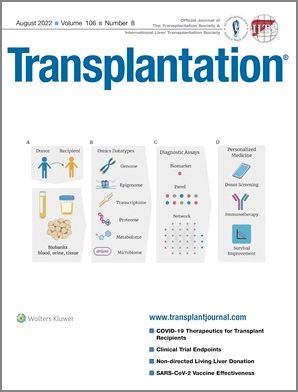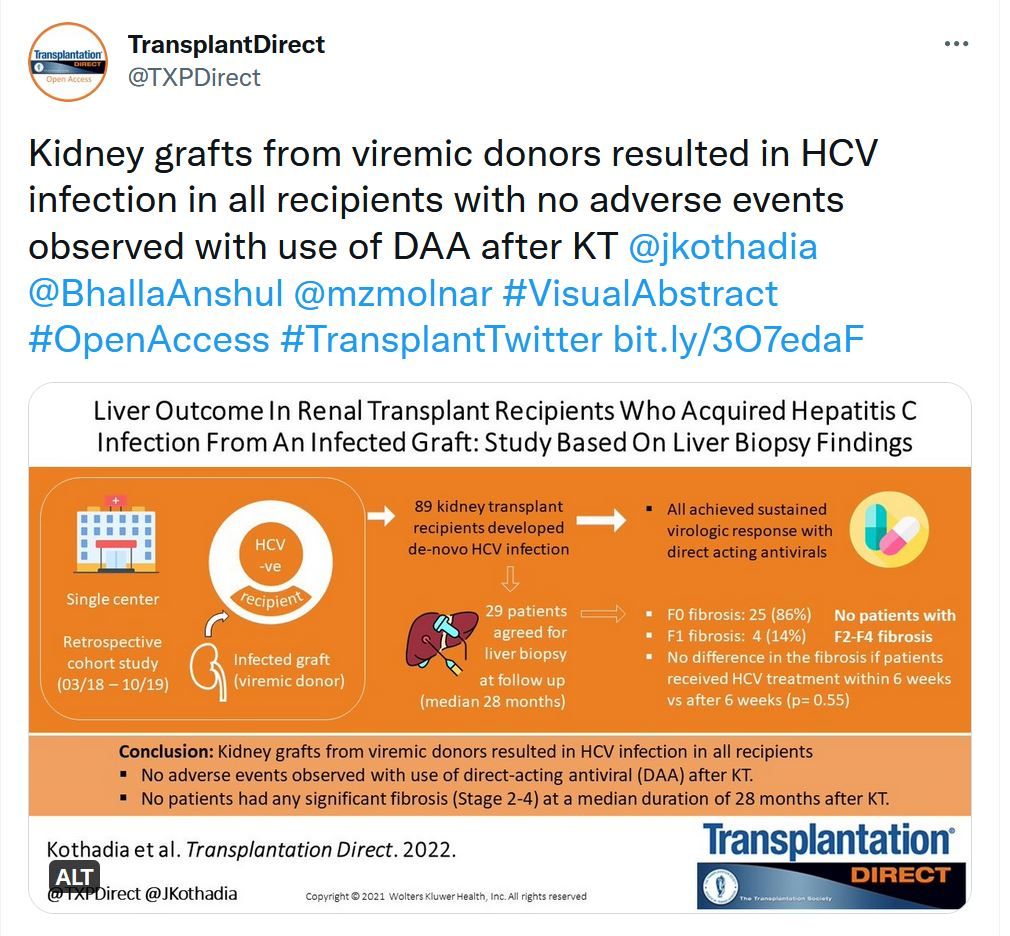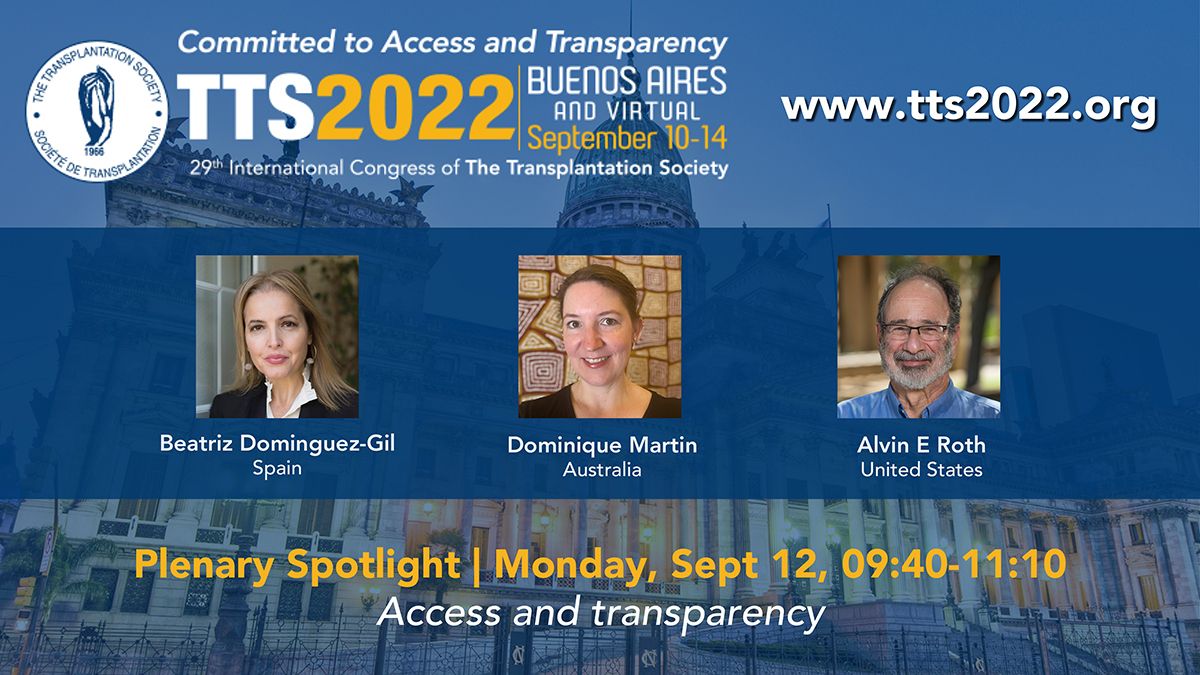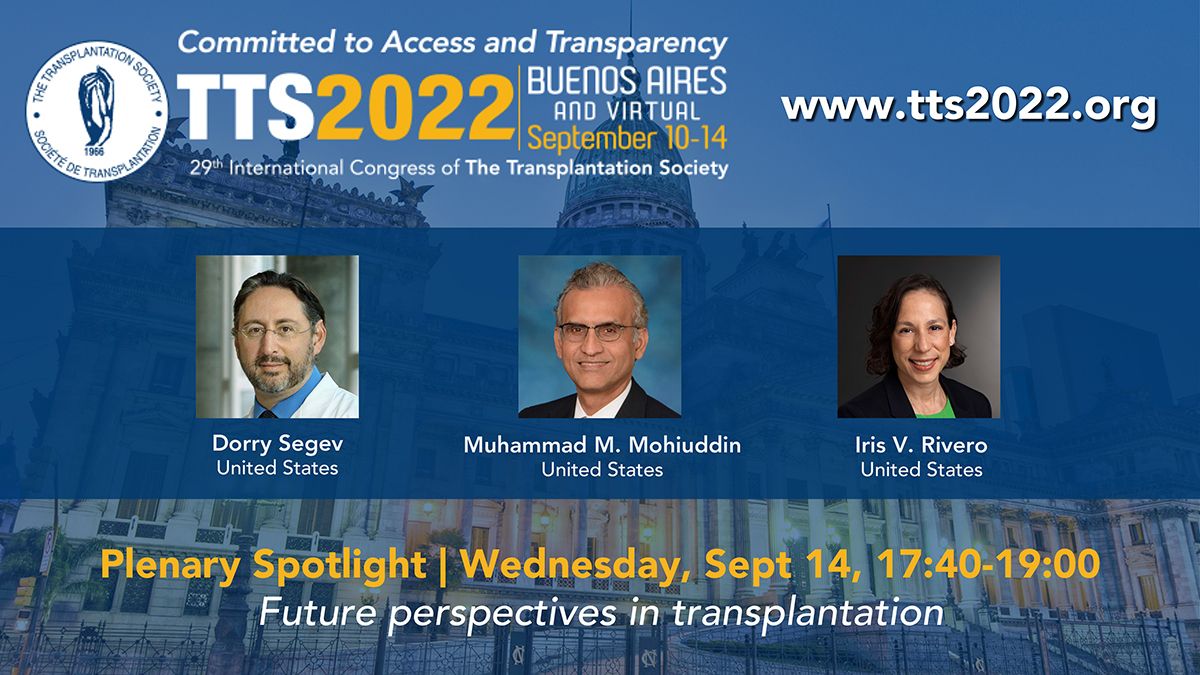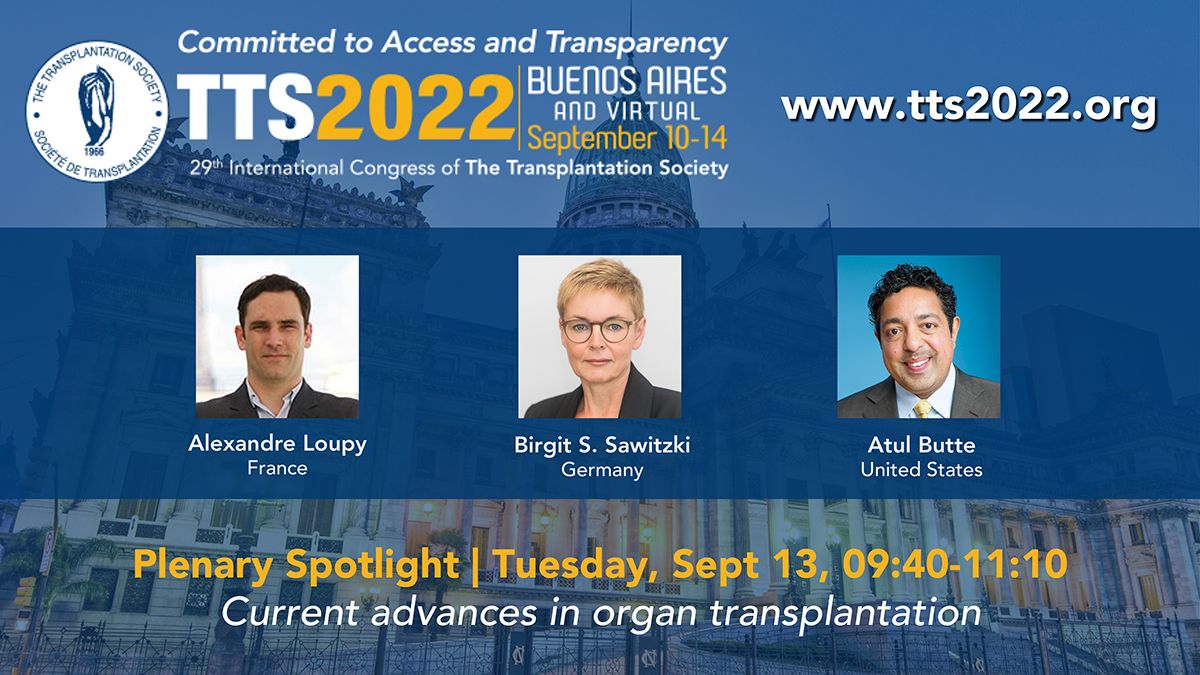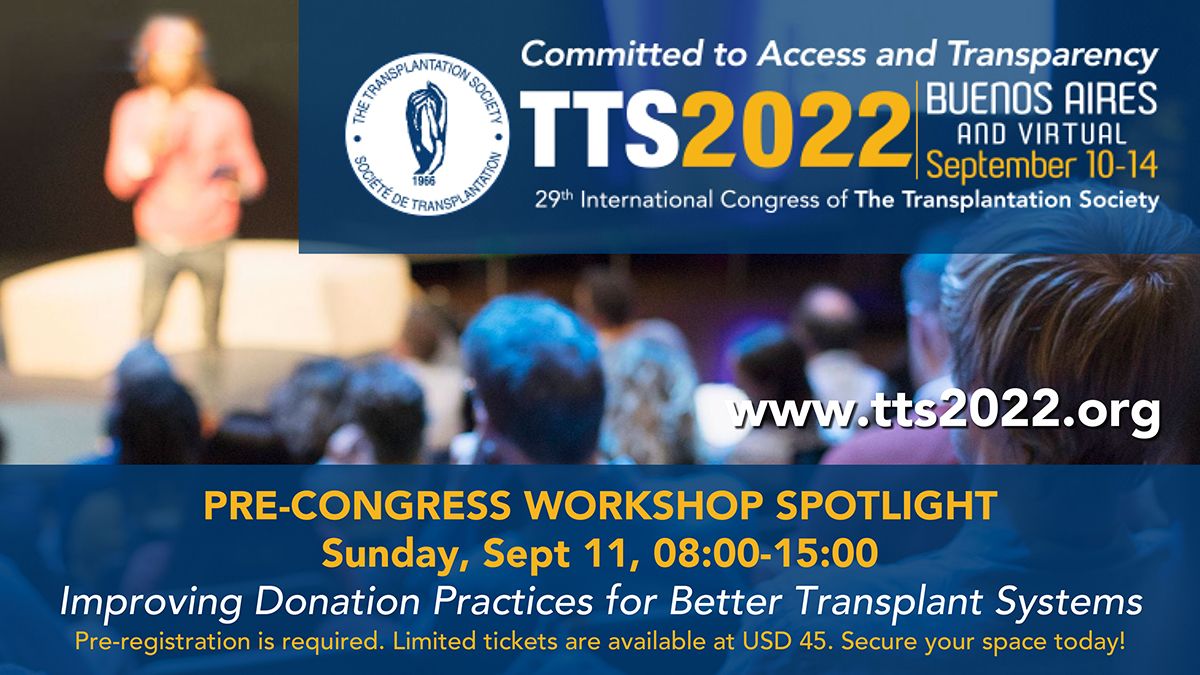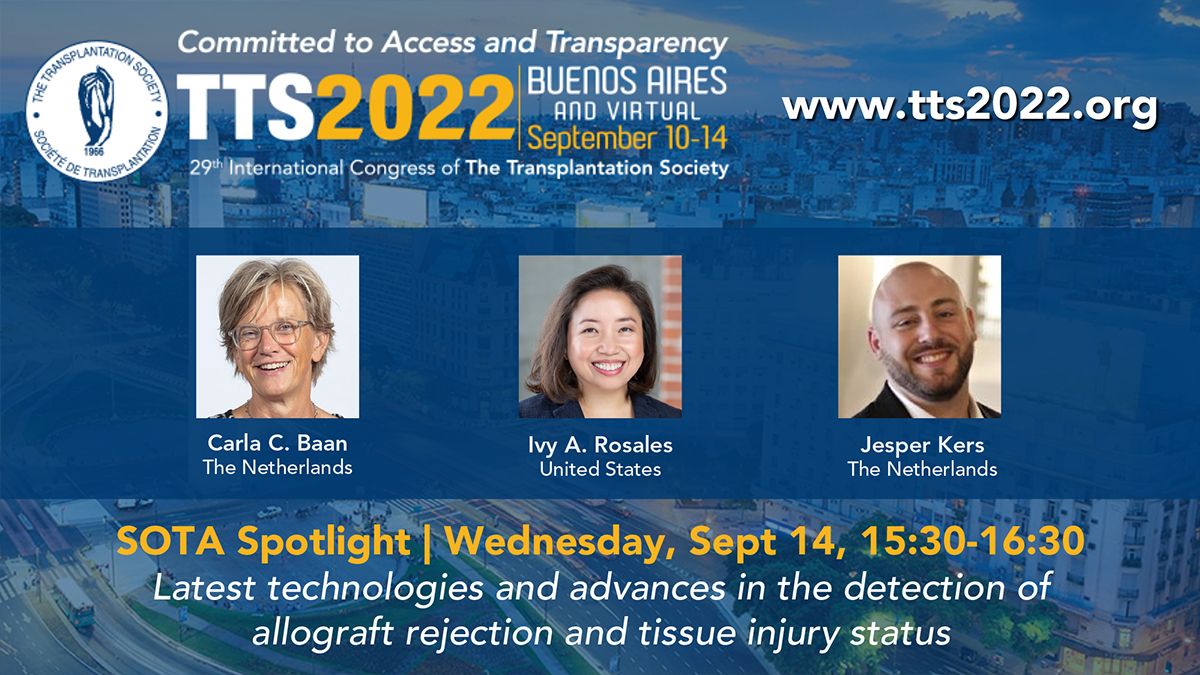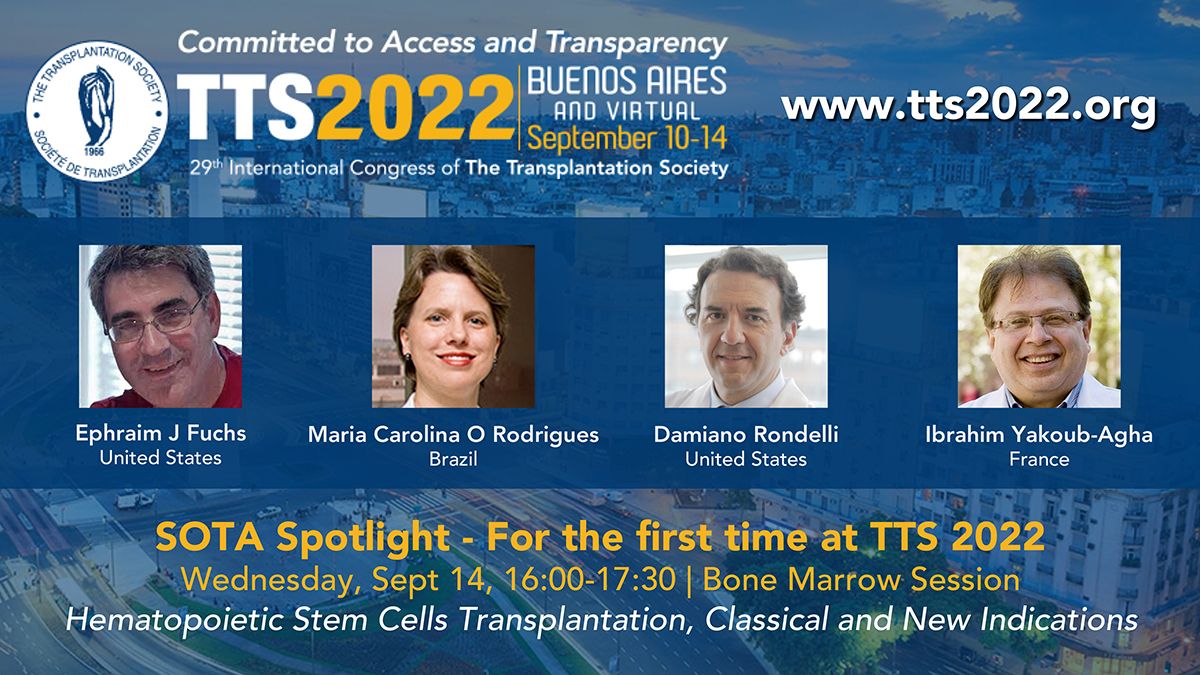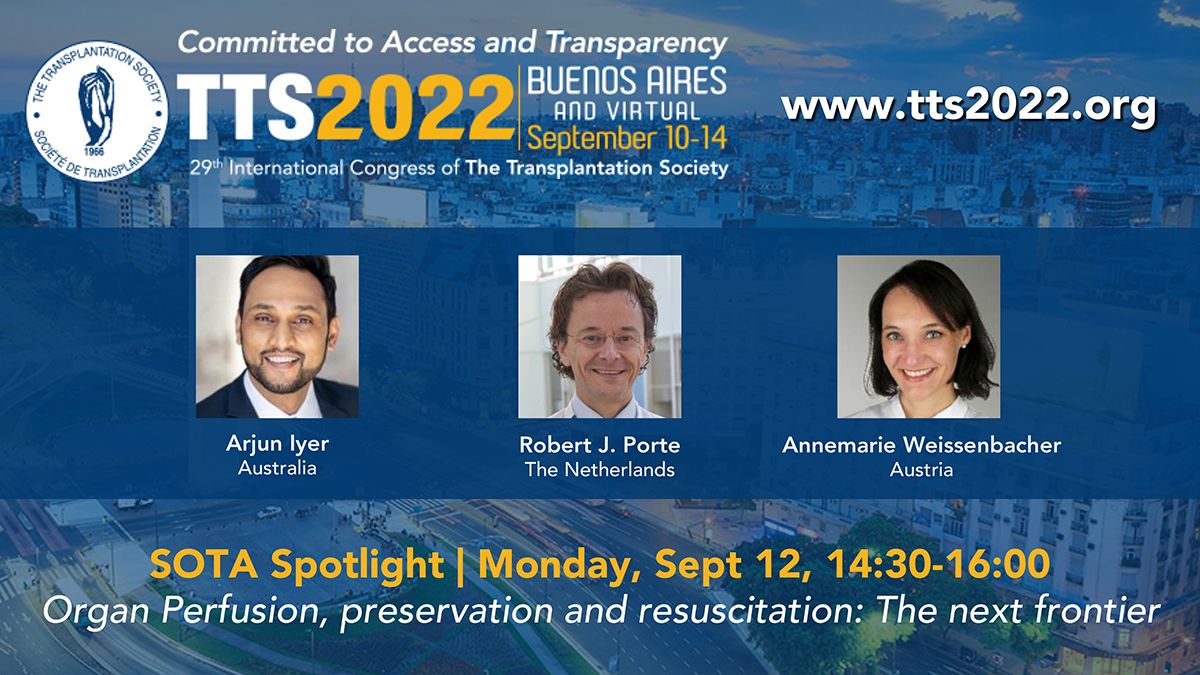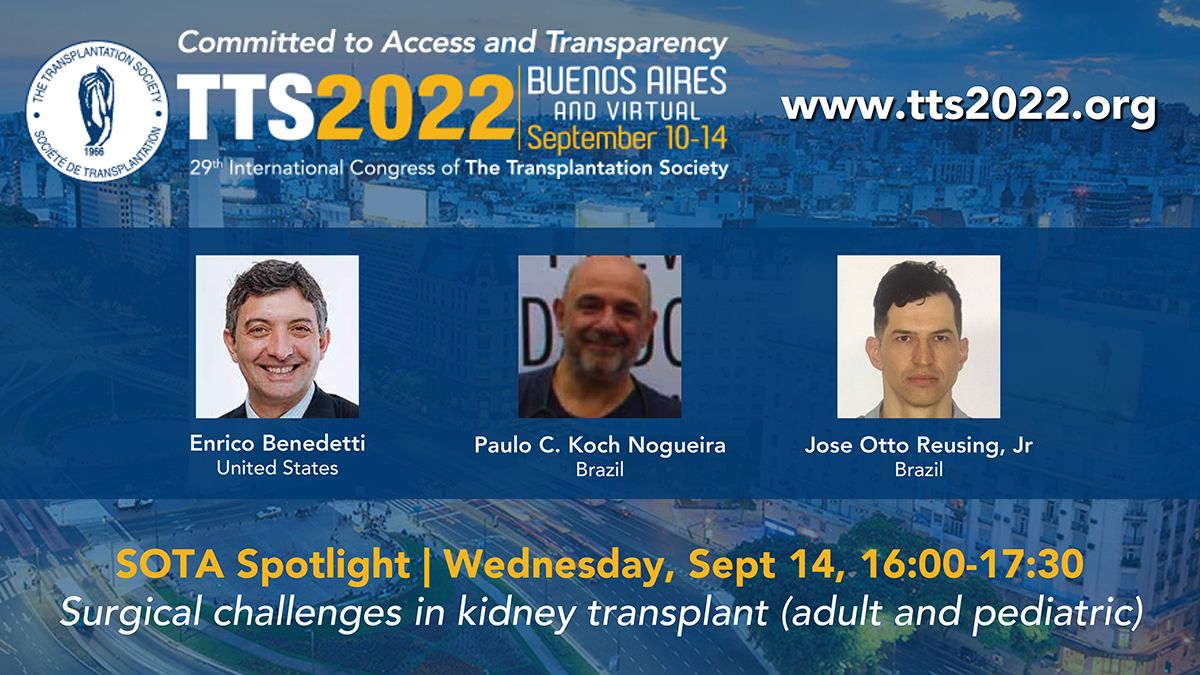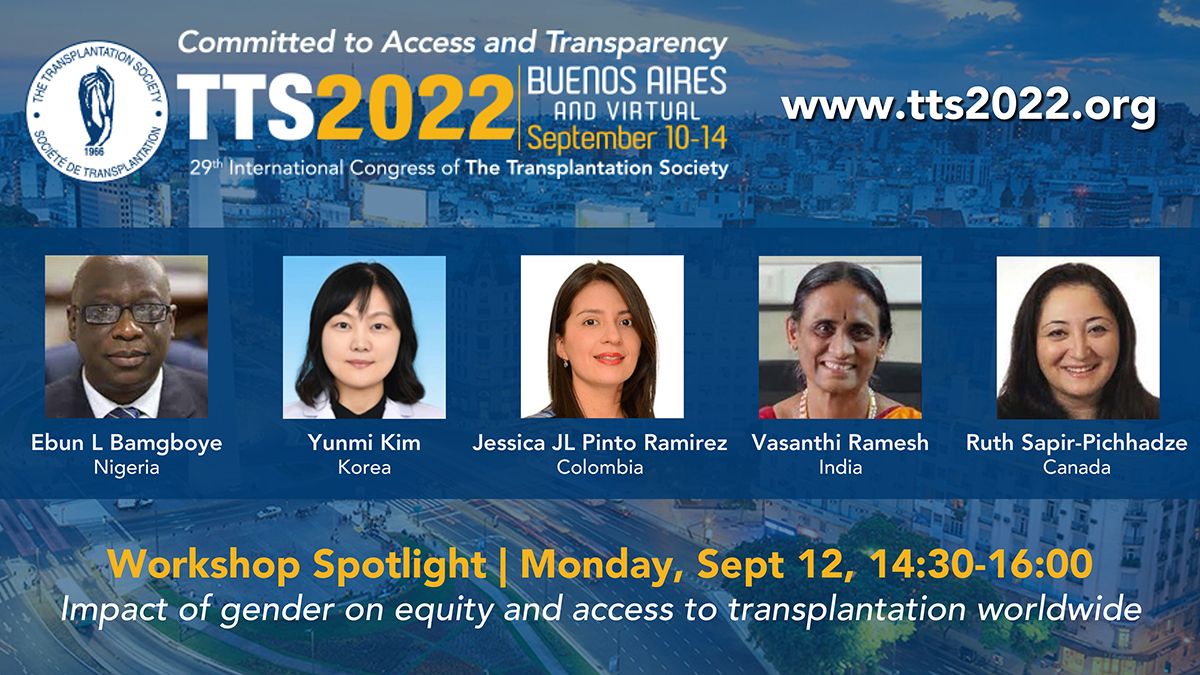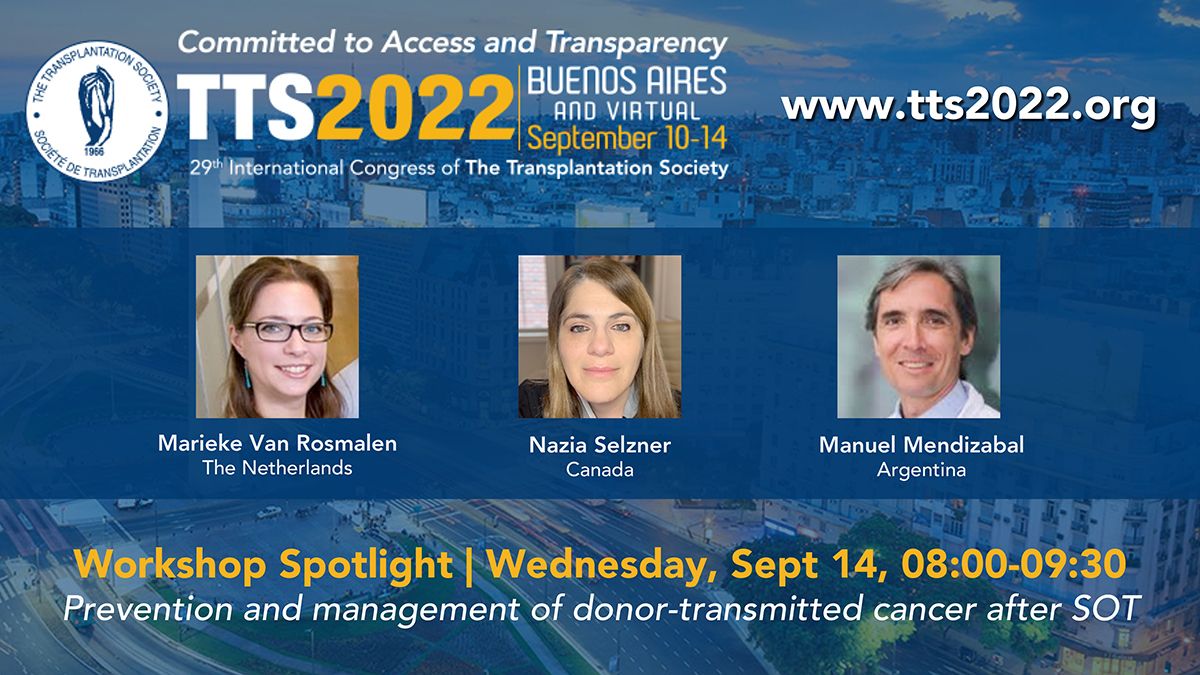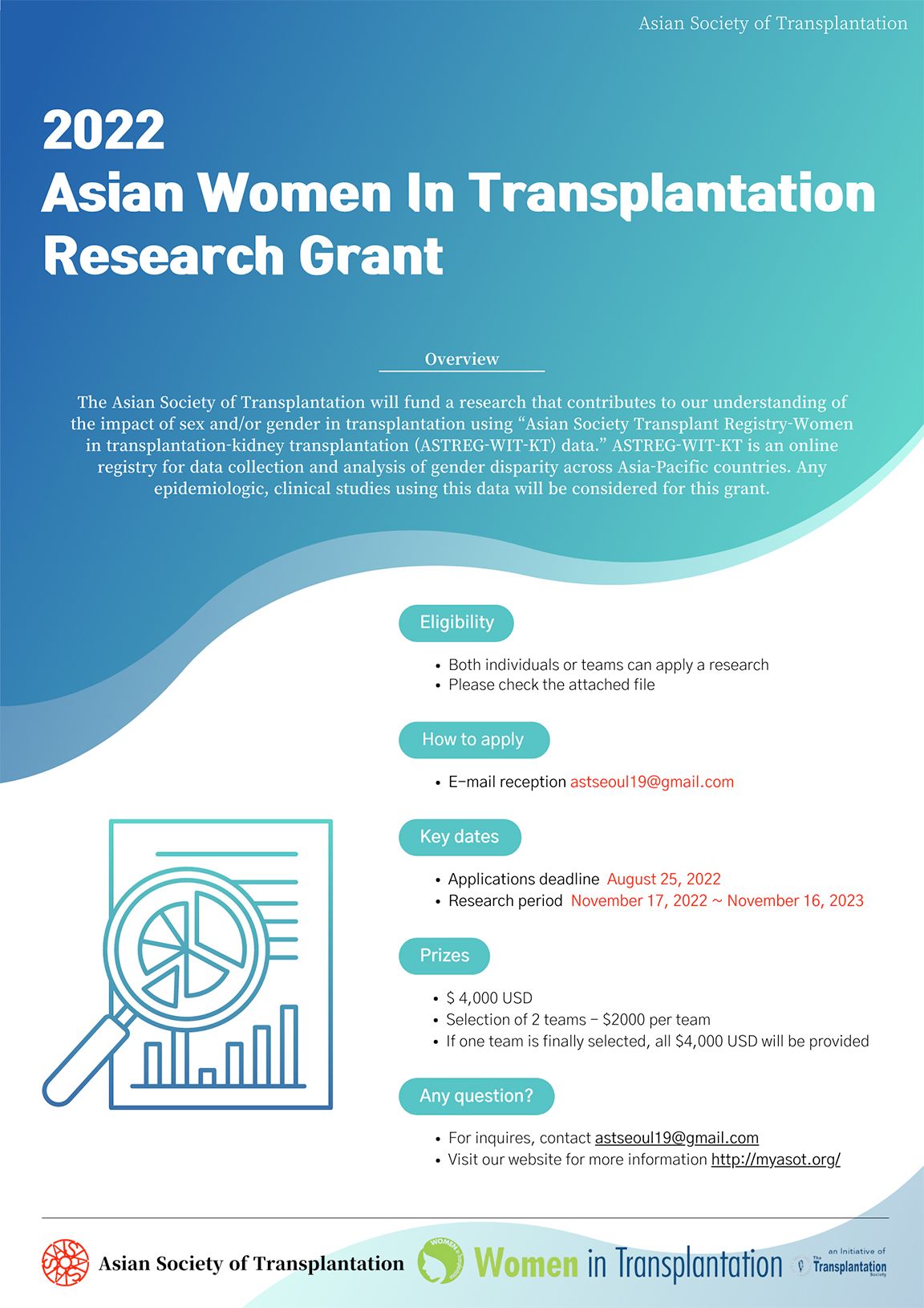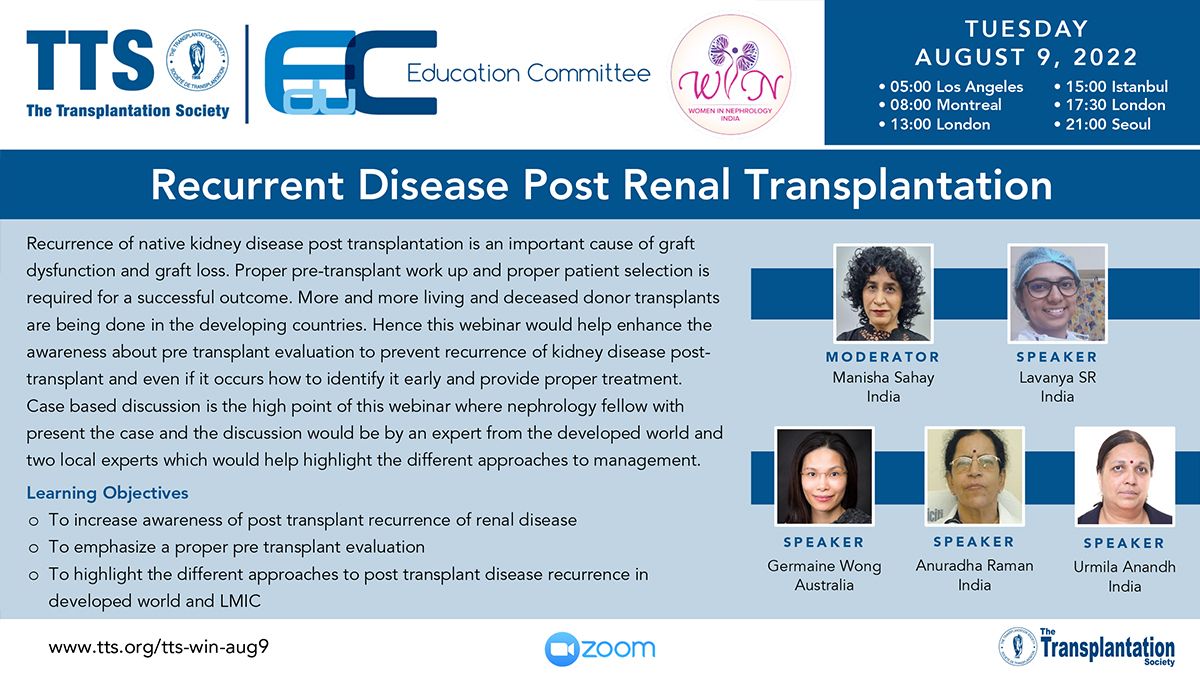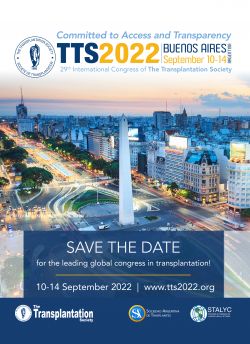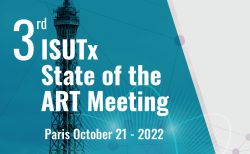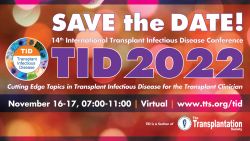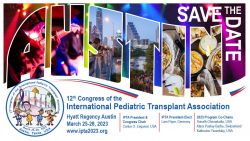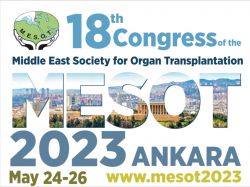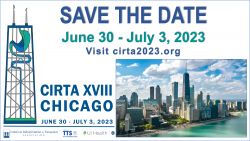
Transplantation August 2022 Issue
JUST RELEASED - TRANSPLANTATION - AUGUST ISSUE
The COVID-19 pandemic has, for many, settled into a stable routine, but for transplant recipients this is far from over. In this issue is a wonderful review of therapeutic options for transplant patients, together with more information on vaccine ineffectiveness - this time from a large single center study. Leaving COVID aside you will also find news on patients preferences in islet transplantation and results of an international survey of islet monitoring strategies. A thoughtful and timely piece on research on donors and a great overview of the science of eosinophils will catch your attention. Overviews on clinical trial endpoints and on the impact of donor recipient genetics on transplant outcome also provide current perspectives. Living liver transplantation and the many variations that perfusion preservation can bring are amongst the myriad of subjects this month.
CLICK HERE TO ACCESS THIS ISSUE
TTS MEMBERS - CLICK HERE TO SIGN-IN FOR OPEN ACCESS THROUGH TTS.ORG
Stefan Tullius Elected TTS Vice President (2022-2026)
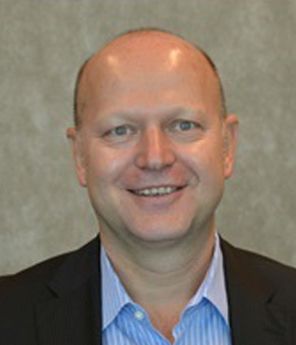
We would like to congratulate Stefan Tullius on winning the TTS by-election for the position of Vice President. Stefan will be a great addition to our council bringing his vast experince in basic, clinical and translational science and medicine to go along along with his current duties as one of the Executive Editors of Transplantation.
This by-election was held due to the current Vice President (John Fung) being elected as the incoming TTS President-Elect.
Transplantation Updates

Transplantation - Highlighted Article
Transplantation - In The News
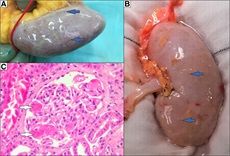
Kidney Transplants From Donors With Vaccine-Induced ITP and Thrombosis
July 18 - Researchers assessed the UK experience of kidney transplantations from deceased donors who had vaccine-induced immune thrombocytopenia and thrombosis (VITT), given the theoretical risk of transmission “via passenger leukocytes within the allograft.” Their report, published in Transplantation, found that favorable transplantation outcomes were possible with kidney donors with VITT.Transplantation Direct - Week's Most Downloaded Paper
Liver Outcome in Renal Transplant Recipients Who Acquired Hepatitis C Infection From an Infected Graft: Study Based on Liver Biopsy Findings
Long-term liver outcome in hepatitis C virus (HCV)-negative kidney recipients who acquired HCV infection from viremic donors is of intense interest in the transplant community. We evaluated the incidence of fibrosis in liver biopsy specimens of recipients who were transplanted with HCV-infected grafts.Hot Off the Press
Women in Transplantation & Asian Society of Transplantation - Fellowship Grant

TTS Needs Assessment Survey
The slogan we adopted for the TTS 2022 Congress is "Committed to Access and Transparency" and as a lead-up to the Congress we have launched a new needs assessment survey which will aid TTS in developing new programs, educational material and strategies to better improve access and transparency in the field of transplantation. As a non-governmental organization in official relations with the World Health Organization (WHO) the information collected will feed into the work TTS is doing as part of our WHO collaboration.
Your support, by completing this survey, will contribute to the success of this initiative. Your answers will be kept confidential and anonymous.
Contact
Address
The Transplantation Society
International Headquarters
740 Notre-Dame Ouest
Suite 1245
Montréal, QC, H3C 3X6
Canada
Используйте Вавада казино для игры с бонусом — активируйте промокод и начните выигрывать уже сегодня!

